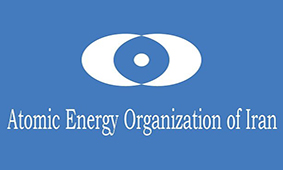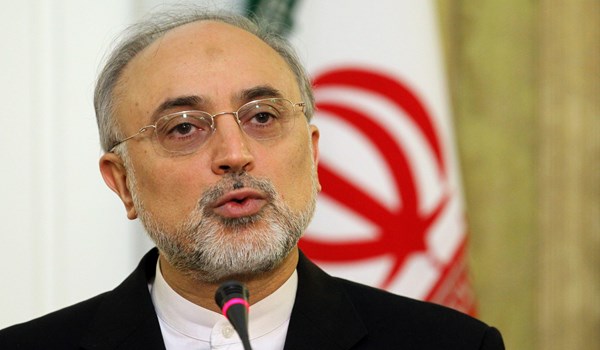
Iran Determined to Develop Science, Economy, Industry


Salehi hailed Iran's scientific progress, in a Tuesday address in a ceremony held to celebrate the 40the anniversary of the victory of the Islamic Revolution.
The Iranian senior official urged cooperation with the world states in all fields.
Engagement with the world is inevitable for all countries; economic development and progress in fields of science and industry is not possible without engagement with the international community, Salehi added.
In the economic field, government should decrease its reliance on oil revenues and focus on boosting the national production and export of Iranian made products abroad, the official added.
He said that Iran and Iranians gained much respect in the world after the Islamic Revolution in Iran.
Two weeks earlier, Salehi said that the country has a good status of uranium reserves, adding that Tehran will increase the number of yellowcake plants with 100% reliance on its own human resources.
Salehi said that Iran will build several yellowcake plants in Yazd province, central Iran.
Pointing to the shipment of second yellowcake consignment from a factory in Ardakan, Yazd, to Isfahan, he noted, “We will have similar factories in several regions of Yazd province in the future.”
He went on to say that the yellowcake facility in Ardakan has been developed by Iranian experts using state-of-the-art technologies, adding that it is the second of its kind after the first in Bandar Abbas.
Asked about the status of uranium explorations in the country, Salehi said that from about 2010, with the support and advice of Leader of the Islamic Revolution Ayatollah Seyed Ali Khamenei, Iran started the aerial uranium exploration and up to now some 80 percent of the country's lands has been examined. All the analysis and interpretations of these data are being carried out by Iranian experts, he highlighted.
It was assumed in the past that Iran is short of uranium but explorations proved that it is not either poor or rich in this regard, Salehi maintained, adding that as far as strategic reserves are concerned, Iran has good condition.
Elsewhere, he noted that the greatest achievement of Iran in the nuclear industry is that today “we can be designers,” adding, “We do not need reverse engineering (in this industry).”
He also pointed to nuclear cooperation between Iran and European countries, saying, “They have invested $20 million in our nuclear facilities, and have provided a lot of training courses, and have a very good nuclear cooperation (with Iran), and there is no particular problem.”
Earlier on January 29, Salehi categorically rejected any link between his organization and military bodies in Iran, reassuring that nuclear propulsion project is a completely peaceful initiative.
He made the remarks in response to a question on whether the AEOI has any cooperation with the country’s military sectors in the construction of heavy submarines and warships.
“We have no cooperation with military sectors. We are working on a nuclear propulsion project, but that is also a peaceful project. If all conditions are met, it will take at least 15 years for the project to be completed,” he said.
The nuclear chief then thanked Russia for its cooperation with Iran, saying “in my opinion, the Russians have done beyond their commitments (for Iran), but still within the framework of the IAEA’s regulations.”
In a related front, earlier on January 13, Salehi announced that the country is taking the preliminary steps to produce what he called "modern 20%-enriched uranium" to fuel the country's reactors.
"The preliminary moves have started to design modern 20%-enriched fuel and we are on the threshold of it," Salehi said.
"It is a product different from the former 20%-enriched fuel which could be used to fuel whatever reactor we build like the Tehran reactor," he added.
"The nuclear reactor in Tehran has been working with the old fuel so far, but the modern fuel will increase its efficiency," Salehi said.
The AEOI head had earlier warned that his country enjoyed the capability to restore 20-percent uranium enrichment if the 2015 nuclear deal was discarded by parties still remaining under the agreement.
Salehi said in December that under the 2015 nuclear deal, Iran accepted to put confidence-building curbs on its nuclear program, but they do not obstruct the “peaceful activities of Iran’s nuclear industry”.
“Enrichment is currently underway, but we would put aside the 300kg limit (set by the nuclear agreement) whenever we wish, and would do the enrichment at any volume and level,” he said in an interview with state TV on the sidelines of a visit to the Fordo nuclear facility.
“We currently have 1,044 centrifuges in Fordo, and if the establishment wants, we will restart 20-percent uranium enrichment in Fordo,” he noted.
Salehi expressed hope that the remaining parties to the nuclear agreement would deliver on their promise and implement their commitments in order to fill the gap created by the US after its unilateral withdrawal from deal, officially known as the Joint Comprehensive Plan of Action (JCPOA).
Otherwise, he said, Iran will have to reduce its JCPOA commitments.
“I would like to warn that this is not a bluff; I have kept my word whenever I’ve said something. Now I’m emphasizing once again that if the establishment wants, we can easily return to the 20-percent enrichment, and meet the country’s needs at any level and volume,” he noted.


Trump weighs using $2 billion in CHIPS Act funding for critical minerals

Codelco cuts 2025 copper forecast after El Teniente mine collapse

Electra converts debt, launches $30M raise to jumpstart stalled cobalt refinery

Barrick’s Reko Diq in line for $410M ADB backing

Abcourt readies Sleeping Giant mill to pour first gold since 2014

Nevada army depot to serve as base for first US strategic minerals stockpile

SQM boosts lithium supply plans as prices flick higher

Viridis unveils 200Mt initial reserve for Brazil rare earth project

Tailings could meet much of US critical mineral demand – study

Kyrgyzstan kicks off underground gold mining at Kumtor

Kyrgyzstan kicks off underground gold mining at Kumtor

KoBold Metals granted lithium exploration rights in Congo

Freeport Indonesia to wrap up Gresik plant repairs by early September

Energy Fuels soars on Vulcan Elements partnership

Northern Dynasty sticks to proposal in battle to lift Pebble mine veto

Giustra-backed mining firm teams up with informal miners in Colombia

Critical Metals signs agreement to supply rare earth to US government-funded facility

China extends rare earth controls to imported material

Galan Lithium proceeds with $13M financing for Argentina project

Kyrgyzstan kicks off underground gold mining at Kumtor

Freeport Indonesia to wrap up Gresik plant repairs by early September

Energy Fuels soars on Vulcan Elements partnership

Northern Dynasty sticks to proposal in battle to lift Pebble mine veto

Giustra-backed mining firm teams up with informal miners in Colombia

Critical Metals signs agreement to supply rare earth to US government-funded facility

China extends rare earth controls to imported material

Galan Lithium proceeds with $13M financing for Argentina project

Silver price touches $39 as market weighs rate cut outlook

















